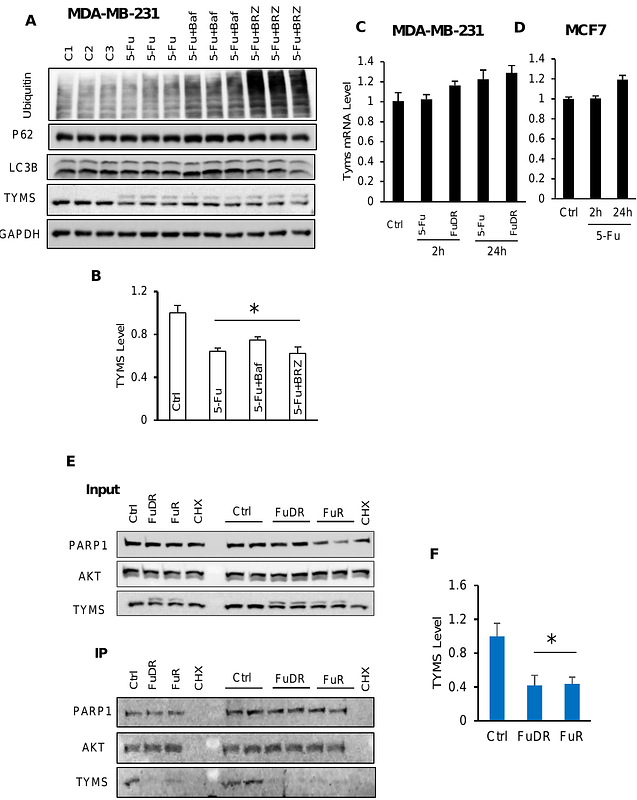Mechanistic Insights into TYSM Protein Regulation by mTORC2 in Response to Chemotherapy.

Mechanistic Insights into TYSM Protein Regulation by mTORC2 in Response to Chemotherapy.
Azzi, A.; El Sayed, A.; Serwa, R.; Zakrzewski, M.
AbstractTranscriptional and translation control of thymidylate synthase (TYMS) is poorly understood, particularly in response to chemotherapeutic drugs such as 5-Fluorouracil (5-FU) and its derivatives. The current study addressed this gap by demonstrating a biphasic response in TYMS protein levels upon 5-FU treatment. Indeed, we observe an initial reduction within the first few hours, followed by a marked increase at 24 hours. These changes occurred independently of transcriptional regulation, as TYMS mRNA levels remained stable during the early phase and showed only a moderate increase later. We further showed that neither autophagy nor proteasomal degradation contributed to this dynamic, but instead it is driven by change in its translation. Using thermal proteome profiling, we identified SIN1, a key component of the mTORC2 complex, as a key regulator of TYMS protein levels. Functional studies revealed that SIN1 depletion negatively alters TYMS levels and dynamics and sensitizes cancer cells to 5-FU-mediated cell death. These findings uncover a novel mechanism controlling TYMS protein levels and suggest that targeting SIN1 may represent a promising strategy to enhance the therapeutic efficacy of 5-FU-based treatments.